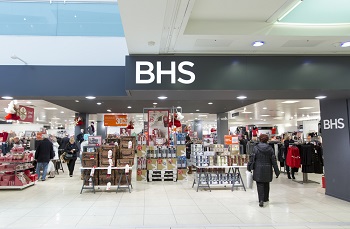
BHS is a great case study for any business teacher currently teaching PESTLE, Ansoff’s Matrix, Porters generic strategy, culture, leadership or e-commerce. To be honest you could cover so many topics with this ONE business.
Not long after it disappeared from the high street, it has announced that this brand will continue as a website only business.
So, will BHS work as an e-commerce brand?
Woolworths tried the same strategy a few years ago and really does rely on customer loyalty and nostalgia for a brand. But did BHS, like Woolworths, just have its day? BHS sold clothes – with huge competition on the high street, they sold Christmas goods again with competition from the supermarkets, John Lewis and Marks and Spencer, and finally they had a café… just like the supermarkets, Marks and Spencer and the rise of Starbucks and Costa Coffee also targeting the same market.
As mentioned above, BHS are hoping to target loyal customers:
‘According to the Managing Director, David Anderson, the BHS re-brand will be counting on the loyalty of the store’s original customers.’
But who exactly is a loyal customer?
‘With a customer base of well over one million people and the fact that we have secured contracts with so many leading suppliers who are providing products that were among the most popular with our shoppers, we are in the best possible position for launch.
Of course, this audience is likely to be an older demographic – those who faithfully shopped from BHS up until the very end.
It makes sense that if the customers remain, so too will their desire to shop from BHS.’
If BHS are targeting their older demographic, will they have the ability to go online and shop from laptops, tablets and mobiles? Will they even offer something that cannot be bought elsewhere in one of the other stores previously mentioned?
Their online is aiming to focus on its previously biggest-selling products:
‘BHS is hoping to draw in loyal customers with a limited but high quality product range.
With 75% of the store’s most popular stock being homeware and lighting, it will be specifically concentrating on these areas for the time being.’
This puts them in direct competition with many other homeware firms, not only the supermarkets, Next and Marks and Spencer but also some already established companies online such as Made.com, Habitat and Maison du Monde. If they are looking to target loyal customers then wouldn’t it be better to still have some high street presence to focus on those older customers who may still wander around window shopping at the weekend and even during the quieter weekday periods if they are retired.
BHS makes a great case study for any business teacher at the moment, and with the BBC programme documenting the collapse of the business this is a great consolidation or introduction business to look at.
Donna Jestin
Teacher of Business and teaching and learning researcher – Kings School & Senior examiner for AQA
References
https://econsultancy.com/blog/68352-bhs-is-now-pureplay-ecommerce-will-loyal-customers-move-online/



